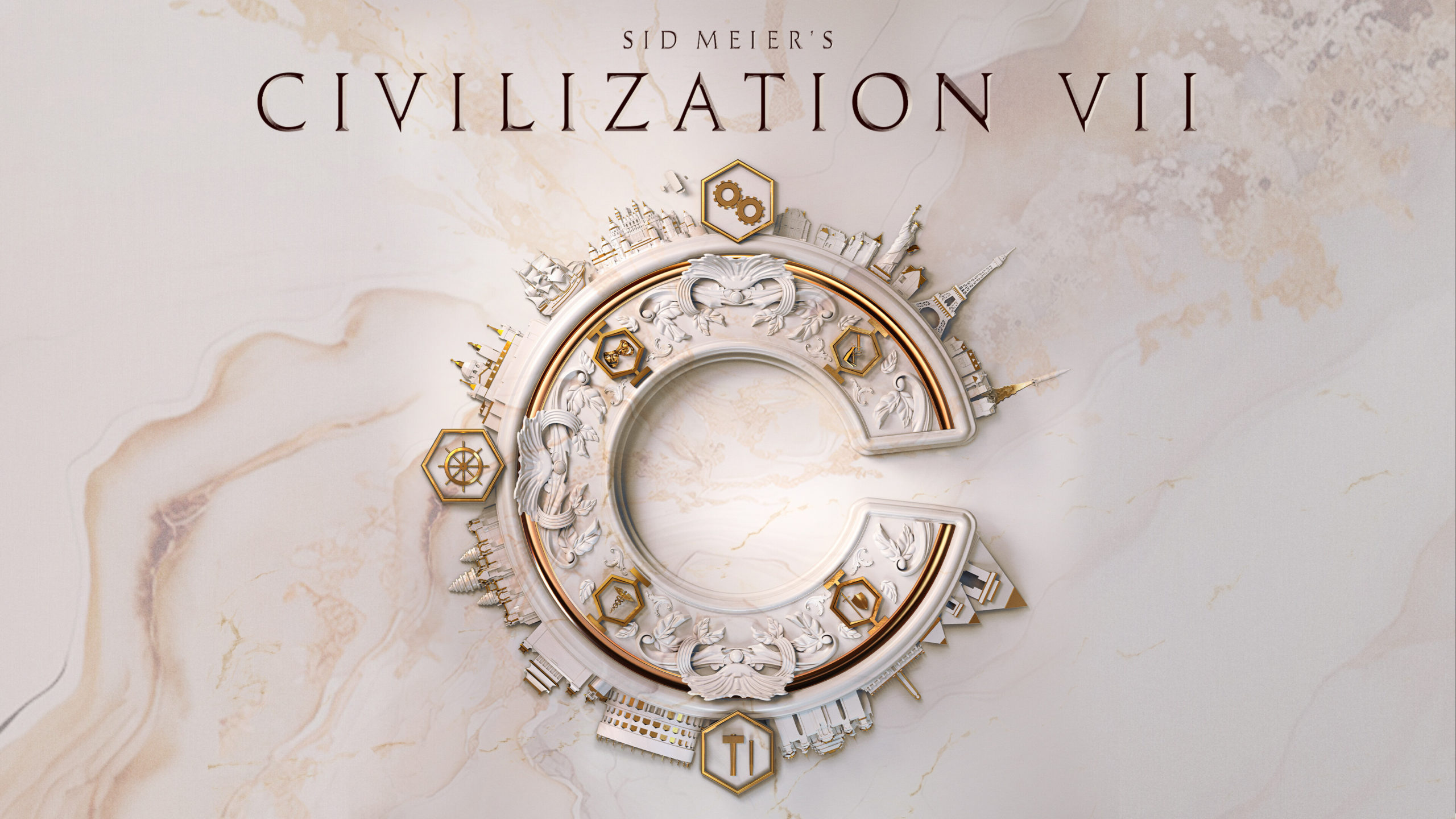The dawn of life as we know it begins for the seventh time with Sid Meirer’s Civilization VII. Fireaxis return to the society building 4X strategy series with a fresh approach and new additions. As with all modern societal upheaval, however, change isn’t always the promise of better. Ousting one overly militant despot (looking at you, Napolean) won’t guarantee a new age of prosperity. Can fresh intentions and well-meaning promises of a bold new approach deliver a stellar city builder with a buoyant population in tow?
Raise your towns, charter new territories and embark on a grand adventure with me to discover if Sid Meier’s Civilization VII truly is a reinvention of the series, or a disappointing return to the dark ages.
Oh I Am Serious, And Don’t Call Me Xerxes
Where else to start but with the selection of historical figures available to choose from? I immediately noticed the absence of some pretty significant personalities. Gandhi for example is suspiciously absent, but aside from this, the roster of leaders is fairly good. There have been variations of certain characters added, like with Xerxes or Napolean himself, giving a few options for choosing your infamous favourites with different flavours. Once again, the path you want to take towards victory will be the biggest influencer, as each leader specialises in a couple of the four pathways, so choose wisely.
I went with the Persian might of Xerxes for my first full campaign, bringing the full force of the Eastern force to bear on the world. Playing militaristically actually felt like the optimal choice, as you can sweep across the land with a mass of armies that even Caesar would have cowered at. A full campaign is now comprised of three ages, during each of which you can pursue Culture, Science, Military or Economic objectives to achieve a victory state. This has become a core part of the Civilization experience and it’s very much at the forefront of the experience in VII.
I did have a tougher time in my second campaign with poor Freidrich though. I ventured out into the continents in search of cultural artefacts to ascend my society into greatness, only to be stonewalled by a rather traitorous Benjamin Franklin and glitchy map. One of the said artefacts was stuck on a piece of land my explorers were unable to get onto, effectively locking me out of that pathway entirely. Having committed most of my playthrough (and economy) to this end, I was rather screwed as my World War 1 era cannons were faced with the reality of modern APCs and tanks.
Generally, the four routes to victory are nicely tuned and provide clear objectives on how to get there. I couldn’t shake the feeling that the game kind of necessitates military action to achieve any of them though, simply because the opposing AI can be quite erratic and wiping everyone else off the face of the Earth like a cracked dictator is still the most efficient means to hit the success screen. A couple of requirements are also quite obtuse and poorly explained, leading to some annoying trial-and-error before you can feel truly at home with the game.
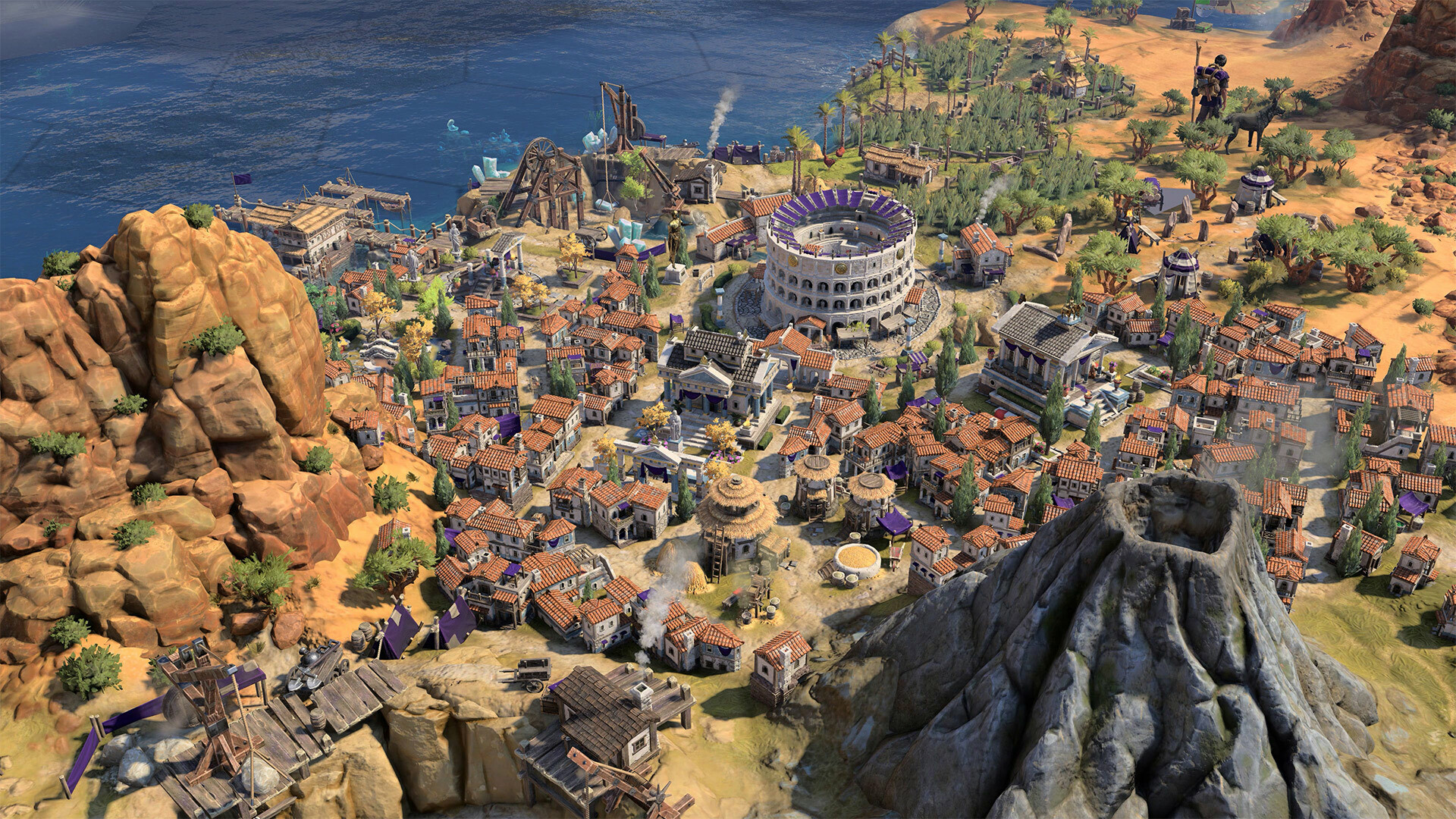
Civilization Revolution
One of the biggest changes Fireaxis made to the formula in Civilization VII is the aforementioned ages. Instead of your societies developing one continuous streak, ages now act akin to chapters. Finish the Antiquity Age by any means, for example, and the world state will pause. At these junctures from Antiquity to Exploration and Exploration to Modern, you’ll select a new faction, representing one of the dominant forces of the time. It’s a fun system in terms of pick-and-mixing your leader with a wildly incongruent societal link (Xerxes leading the French in modern times? Sure).
However, historical accuracy aside, it has tangible impacts on gameplay. Firstly, it streamlines the updating of the world map to a degree, which I found to be an efficient decision. Your armies will convert into modern equivalents, and your cities will take on new looks. It almost breaks down one very long campaign into three smaller chunked conquests instead. You may pursue Culture in one, Science in the second and Economy in the last, or like me go Hell for leather on military throughout all three.
Strangely though, it has its own drawbacks. In my first age as Xerxes, I took advantage of my starting advantage by wiping out one NPC faction, before starting a rather ill-advised war with a second. Due to the age change, however, it worked out perfectly. All of the discontent and war weariness that threatened to topple my empire? Disappeared. My troops, wounded and suffering, were all instantly replenished and ready to fight once again. Granted, this probably won’t happen every time, but it does allow for some serious steamrolling if you make advantageous use of the ending of an age.
Moreover, Civilization VII introduces Crisis policies, which you must select from when nearing the end of an age. From plagues besieging your cities to a drastic loss in happiness in your otherwise thriving metropolis’, these basically serve to hinder your progress. I didn’t particularly like these, as the solutions either fell to ignoring them completely and hoping for the best, or generating a particular unit to solve them whenever needed. They’re more of a chore than a challenge, for me anyway. I like the change to the mechanic of ages, but whether it appeals to series veterans remains to be seen, as it comes with its own issues.
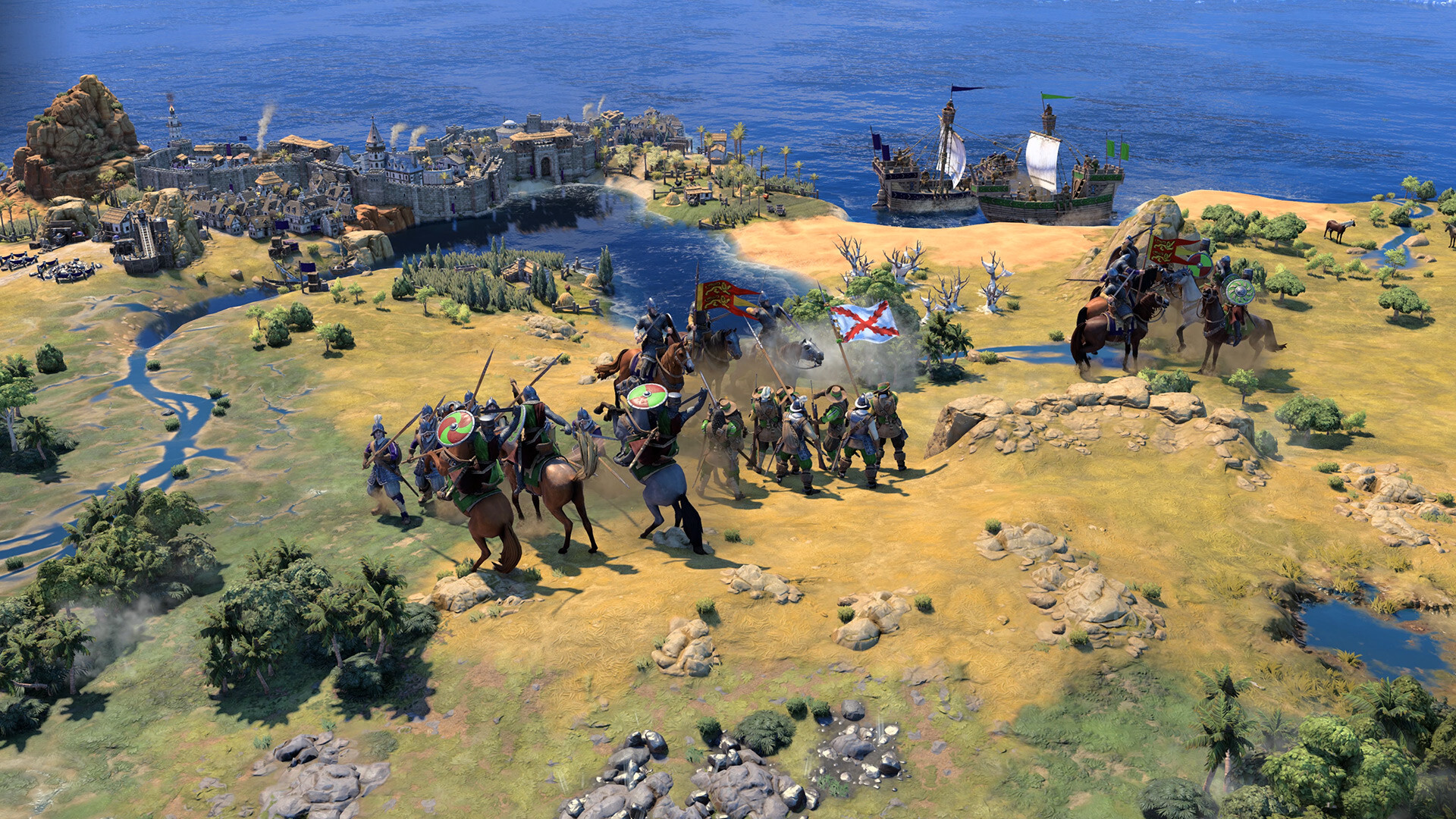
Age of Wonders
Despite the punt Civilization VII takes with some of its choices, the fundamental joy of creating your own story remains. When I allowed Himiko to build on my borders, believing we shared a mutual respect, only for her to stab me in the back after a gruelling war with Jose Rizal, I was incensed. For the entirety of the next age, I spent every moment plotting her destruction. She sued for peace three times, including at the final moment as I rolled my cavalry up to her last bastion of existence. I declined on every occasion and took great pleasure in swatting her aside for good.
One of the reasons I enjoy 4X strategy games so much is the moments of drama, whether that be from an unpredictable AI faction or a reckless fellow player online. I often found myself caught up in the narrative of who’d treated me well and who’d earned my ire. I felt a smack of guilt as I turned on my otherwise loyal ally Tecumseh, surrounding his various cities at once in a horrifically devious Machiavellian scheme. That essence is still very much at the heart of Civilization VII and that’s what will keep me coming back to the game for numerous more campaigns.
Management of cities is a bit less stellar, truth be told. I was often throwing buildings down without too much consideration, owing to the lack of real understanding of how it all works. There’s an endless stream of tutorials thrown at you in the first campaign you engage in, but a lot of it doesn’t cover the more intricate details of how cities operate. Finding this information via the Civilopedia was somewhat of a crapshoot too, given the endless reams of text that exist there. In the end, I gave up really trying to understand it all and chose to chug along in blissful ignorance.
Furthermore, diplomacy feels extremely basic in most cases. There are a handful of options (i.e. opening borders, denouncing, sharing military aid etc.) for basic interactions and you can declare war or form an alliance. There’s no real scope for scheming or setting people against each other, as the mechanics don’t provide any real means to do this. Thankfully, the deepening of the religion, civics and research trees provides some of the missing depth in other aspects of the game. Grafting through the trees to reach enlightenment never ceased to be motivating, with even the pleasure of radio communication being a significant sign of prosperity.
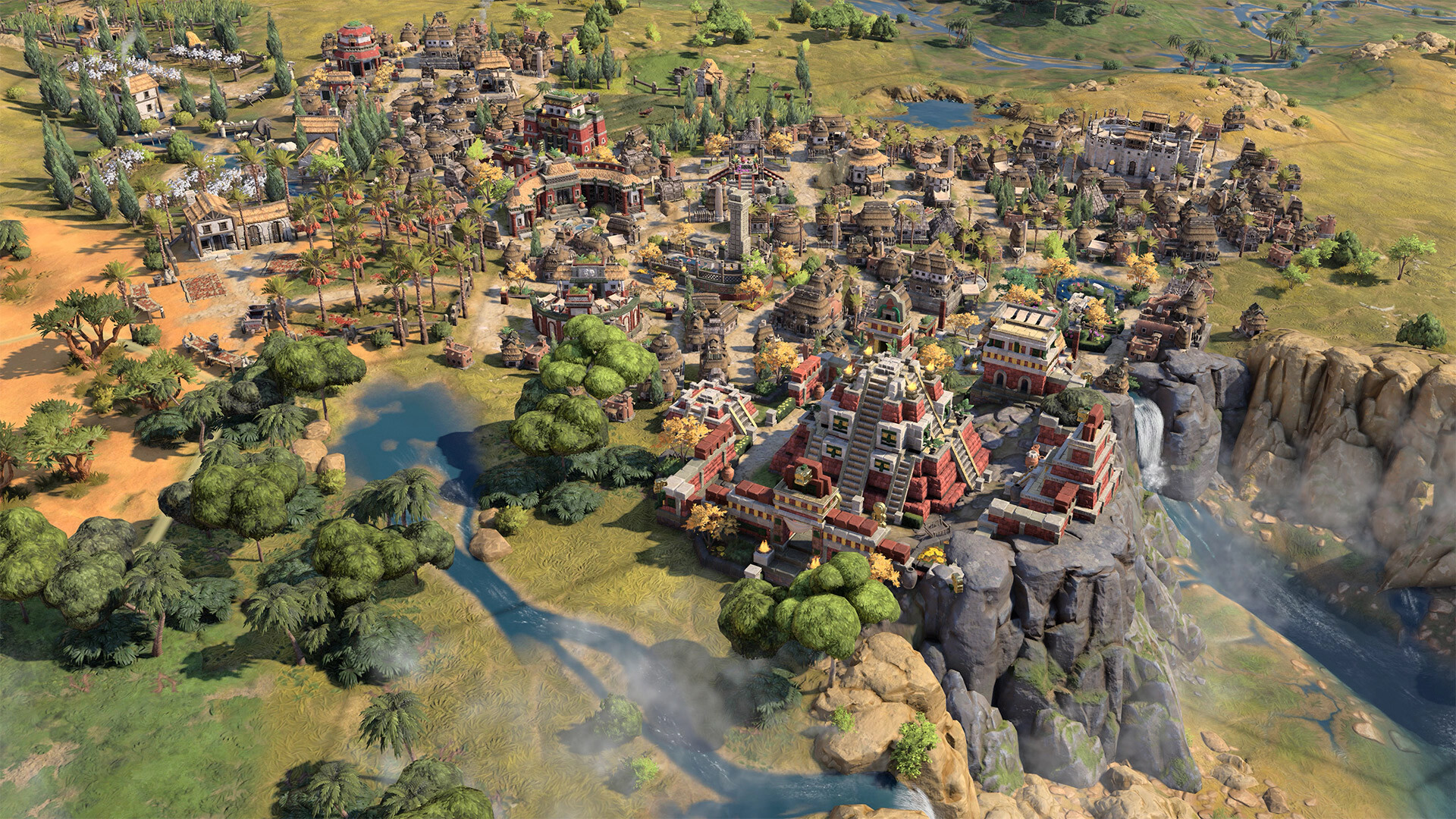
Console Your Populace
Now, you may have noticed that, like the absolute wildcard I am (I’m not), I took the reckless plunge of playing Civilization VII on console. I know, I know, lock me up, I must have vacated my wits. However, someone’s got to do the dirty work of reporting on how a turn-based strategy title translates onto a controller. I’m very pleased to report that, shockingly, it’s a relatively smooth experience. Civilization VII moves much of the menu traversal to a single radial menu, and the use of Triangle on every turn forces you to select Civics, Research, commanding troops and responding to alerts before you can progress your turn.
The interface is mostly effective at communicating what it needs to, while the automatic nature of rattling through actions for a turn means you don’t have to search everything out every turn through fear of missing something important. It can be cumbersome when traversing a large map by cycling over the hexagon tiles, and I did discover myself miscuing the occasional command. On the whole though, I had a better time interacting with Civilization VII on console than I had any right to.
If you’re after the optimal experience, that will of course still be on PC, but the console port is a decent alternative for those not well endowed with a gigaton of RAM on their PCs. With a host of leaders available, plenty of customisable options for campaigns and online multiplayer, Civilization VII has a strong foundation to build a settled community on console.
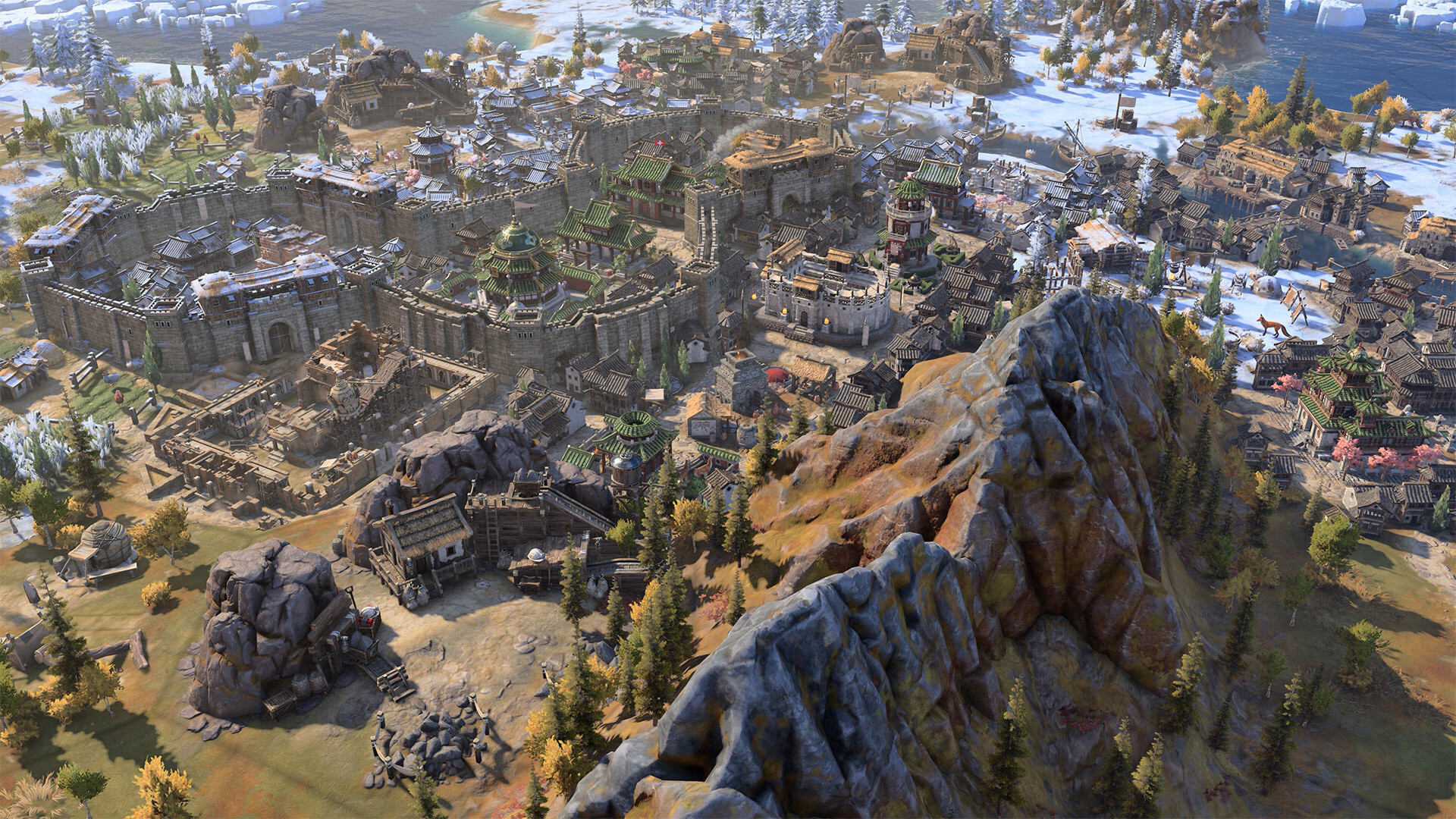
Have A Gandhi At This Civilization
On PS5, Civilization VII looks and runs pretty well too. One of the more contested shifts in this latest entry is the muting down of the exaggerated art style we’ve witnessed before. From my experience, the landscapes were pretty nice to navigate around. When a volcano erupted in a spew of lava or a river flooded my battalions, I liked what Civilization VII was serving. The interaction animations between the leaders didn’t impress me much, as it’s typically reduced to an idle wave of a hand or a pleased smile in place of anything more meaningful.
Textural work has its moments of looking a bit off, but the overall presentation was good, even if it doesn’t particularly wow. I do need to shoutout how well it runs for the most part though, despite one or two crashes here or there, the framerate was solid and cycling through turns is incredibly fast. I often became irritated with Age of Wonders: Planetfall thanks to its absurdly long loading times when ending your turn, but no such issues here. Civilization VII rattles through the AI processes like a well-oiled machine.
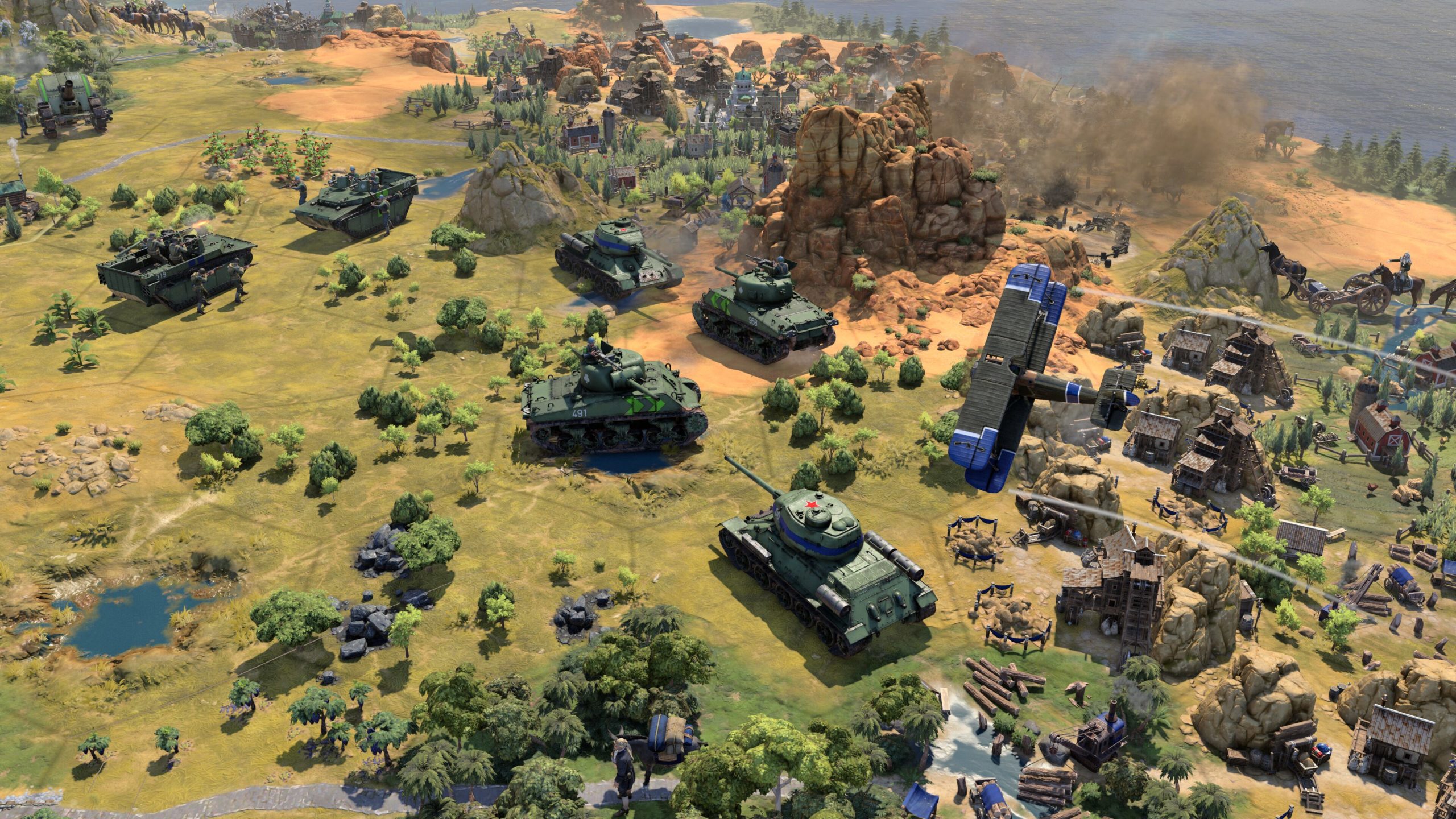
Go Forth and (Somewhat) Prosper
In concluding my thoughts about Civilization VII, I kept coming back to what’s always inspired me with 4X strategy games – the individual stories you create in any given scenario. That sense of wonder has always been at the heart of my appreciation of the Civ series and that’s here and accounted for once again. However, I’m not sure how successful all of the changes to the formula are. There are without doubt some wholesale benefits to the shift in ages and emphasis on more streamlined micro-management.
Unfortunately, as with any societal progress, it’s fraught with friction. The loss of proper understanding and information provision makes a lot of city management feel like little but a side note. Steamrolling your opponents is not only still viable, it’s actually more incentivised, provided you time your actions right. Moreover, the loss of previous favourite leaders and unnecessary roadblocks to succeeding via non-military routes is disappointing.
With all of that in mind, I still recommend Civilization VII. It’s a fun, if disjointed strategy title. I’m intrigued to see what comes from many more campaigns and little can compare to the thrill of surrounding and laying siege to an unfortunate opponent who (unjustifiably) earned your ire. The fact it runs so well on a console is a testament to the streamlining work Fireaxis has done to the series, but it’s perhaps come at a cost to the other elements that make the series so beloved.
Sid Meier’s Civilization VII is available now on PlayStation 4, PlayStation 5 (review platform), PC, Xbox Series X/S, Xbox One and Nintendo Switch.
Developer: Fireaxis
Publisher: 2K
Disclaimer: In order to complete this review, we were provided with a promotional copy of the game. For our full review policy, please go here.
If you enjoyed this article or any more of our content, please consider our Patreon.
Make sure to follow Finger Guns on our social channels –Twitter, Facebook, Twitch, Spotify or Apple Podcasts – to keep up to date on our news, reviews and features.
